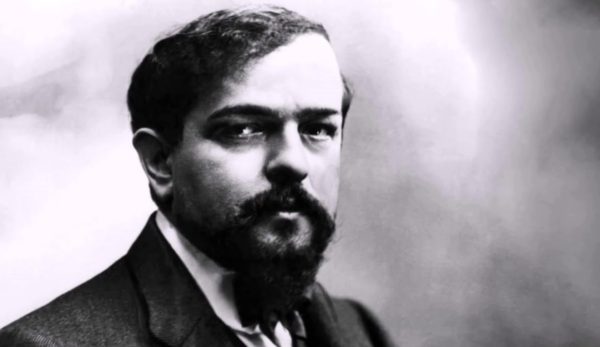Claude Debussy was a determined, persistent, and undeniably talented individual—a famous French composer whose brilliant works gained him recognition far beyond France. Today, his compositions often resonate in conservatories around the world. Debussy dedicated his entire life to music, and it’s safe to say that this was the right decision—he became what he aspired to be, and the world gained another magnificent composer.
Facts from Debussy’s Biography:
- Almost all of the future composer’s childhood was spent in Paris.
- Claude Debussy began learning to play the piano at the age of just 8.
- Thanks to his extraordinary talent, he was able to enroll in the Paris Conservatory at the age of 10.
- Debussy received his first award for musical performance as a pianist when he was just 15 years old.
- Debussy traveled extensively across Europe, always paying close attention to the work of local composers in the countries he visited. He was particularly impressed by the music of Tchaikovsky.
- In addition to composing music, Debussy also performed it, becoming an excellent pianist and a talented conductor.
- Some of his compositions, especially large-scale ones, were never completed, as Debussy often lost interest in them during the creative process.
- Throughout his life, Debussy never attended a single performance of his own operas.
- The composer’s personal life was quite tumultuous, and history has recorded the names of many of his lovers. There were also tragedies—two women took their own lives after breaking up with Debussy.
- Debussy laid the foundations for a new genre in music—Impressionism. His bold experimental compositions, which are now considered iconic, were met with a cold reception by music critics of his time.
- Claude Debussy considered Richard Wagner’s drama “Tristan und Isolde” to be the greatest musical work of all time.
- Despite his acclaim, Debussy was never wealthy. Even on his wedding day, he was giving piano lessons in the morning.
- Debussy had the odd habit of sometimes leaving the house in his slippers, much to the shock of those around him.
- Early Inspiration: Debussy was greatly influenced by the music of composers like Frédéric Chopin and Franz Liszt during his studies, but he quickly began to develop his own unique style that set him apart from his predecessors.
- Pioneering Composer: Debussy is often credited with breaking away from the traditional rules of harmony and structure that dominated classical music at the time, paving the way for modern music with his innovative use of scales, chords, and rhythms.
- “Clair de Lune”: One of Debussy’s most famous compositions, “Clair de Lune,” is part of his “Suite Bergamasque.” This piece has become one of the most recognizable piano compositions in the world and is often associated with calm and peaceful moods.
- Debussy’s “Prélude à l’après-midi d’un faune”: This symphonic poem, based on a poem by Stéphane Mallarmé, is considered one of Debussy’s masterpieces. It marked a departure from traditional symphonic forms and is often seen as the beginning of modern music.
- Japanese Influence: Debussy was fascinated by Japanese art and culture, which was reflected in some of his compositions. The use of pentatonic scales and non-Western harmonies in pieces like “Pagodes” from “Estampes” is a nod to this influence.
- Health Struggles: Debussy struggled with illness for much of his life, particularly in his later years. He was diagnosed with colorectal cancer, which eventually led to his death in 1918.
- World War I: During World War I, Debussy was deeply affected by the devastation and suffering. He composed very little during the war years, and his last works, known as the “Sonatas for Various Instruments,” were part of his attempt to return to the more traditional French style of composition as a form of cultural resistance.
- Posthumous Recognition: Although Debussy was not always fully appreciated during his lifetime, his reputation grew significantly after his death. He is now considered one of the most important and influential composers of the late 19th and early 20th centuries.
- Legacy: Debussy’s influence extends beyond classical music. His innovative approach to composition has inspired countless musicians and composers in various genres, including jazz, film music, and contemporary classical music.
- Musical Child: Debussy had a daughter, whom he affectionately called “Chouchou.” He composed “Children’s Corner,” a suite of six pieces for piano, dedicated to her. This suite is still widely performed today and is a staple in the repertoire of young pianists.
